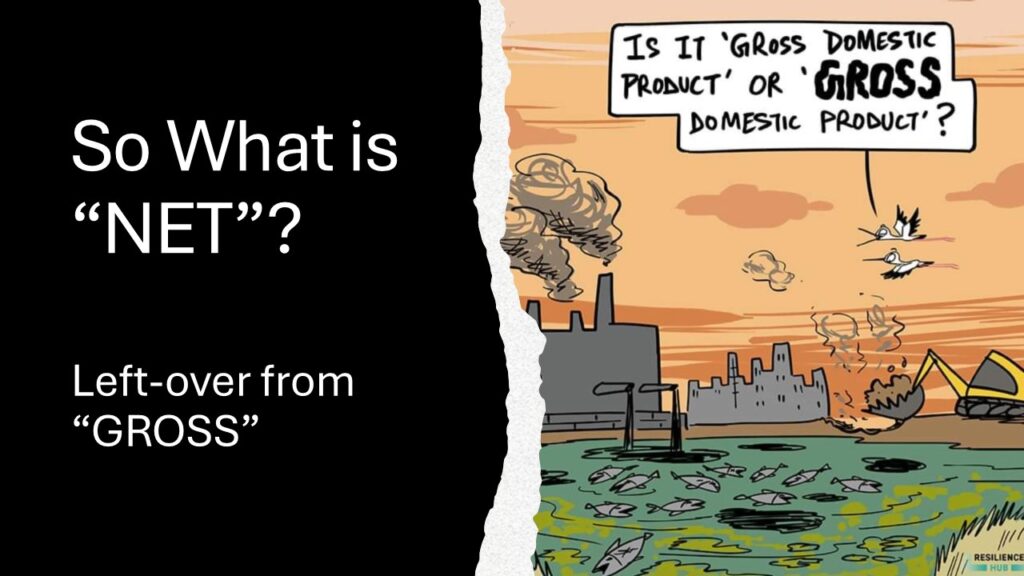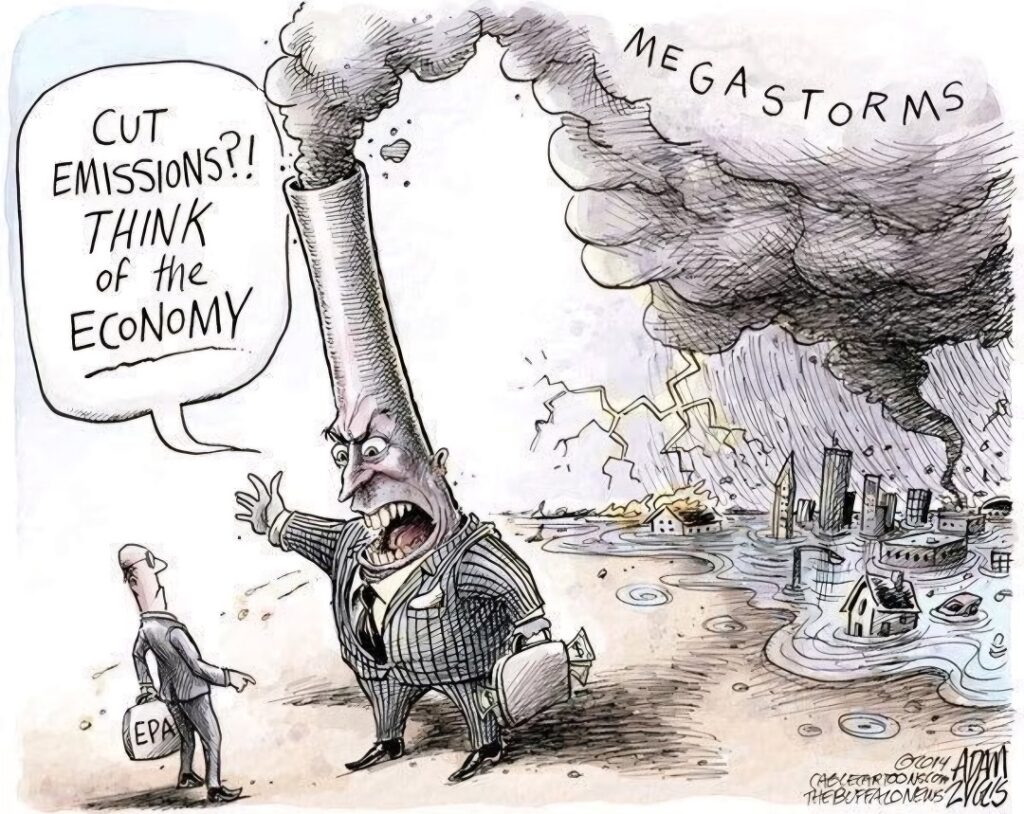
Net-Zero, Net-Positive, Net impact, Net…….
The Science Based Targets initiative (SBTi) recently faced internal controversy after announcing plans to include environmental attribute certificates (EACs) like emissions reduction credits in their updated corporate net-zero standards. Concerned staff publicly opposed the move, with some even calling for the CEO and board to resign. Subsequently, the SBTi CEO resigned, although the news does not directly attribute the resignation to the carbon offset controversy.
This incident got me thinking earnestly about this concept of “Net” and what it means for our current world, that at one end is hurtling towards a ‘point of no return’ to another, where there is still hope through our collective actions.
“Net” is a term from accounting. Net Earnings is the bottom line that remains after deducting all expenses from revenue. It was borrowed to the sustainability monitoring and measuring world where it does not fit. It was borrowed because, from accounting parlance, the term sustainability is equated to sustainability of the business, as can be well understood from the single-materiality definition by the International Sustainability Standards Board (ISSB – under the IFRS Foundation).

Although not originally intended, the Triple Bottom Line (TBL) or Environment, Social and Governance (ESG) evolution also created an impression of barter between impacts. It is clearly visible in the composite score of sustainability/ESG ratings. We now have a composite score in almost every sustainability/ESG rating or ranking. So, the score is averaged out if a company does well in the environment and not well on the social parameters. This also leads to picking and choosing where to act depending on where one could score well while missing the whole canvas around sustainability. The toxic work culture resulting in the suicide of employees cannot be traded off with renewable energy used in the office, nor can it be traded against how much employment the organization generates. However, per the logic of the ESG rating, your social score might go down, but if you still do well in the environment and governance, it is still possible to average out.
The “Net” thinking around sustainability has been a key bottleneck. This trade-off thinking of combining positive and negative impacts, which are not fungible, has limited our progress on sustainable development.
After 25 years of coining TBL, John Elkington in 2018 said that he volunteers to carry out a recall of the concept because the original idea was more expansive, encouraging businesses to track and manage economic (not just financial), social and environmental value addition or destruction[1]. In this Harvard article, he says that when he conceived TBL, it was supposed to provoke deeper thinking about capitalism and its failure, but many early adopters understood the concept as a balancing act, adopting a trade-off mentality. Blame it on the cognitive bias of consultants and accountants and the hard-wired business culture for taking the concept off the track and making it into this lazy way to navigate sustainable development.
In the last 4-5 decades, most corporations have shown improvement in sustainability. But we all know where we are headed in terms of climate change; we know the situation of our air and water, and we are accelerating towards the 6th mass extinction of wildlife. Inequality among people has increased continuously since the 1980s, and we are reaching extreme situations. However, here, the “Net” concept of looking at the impact of all the companies on overall sustainable development is not an agenda.
We constantly hear the excuses of creating jobs at the expense of environmental damage. It is one of the most lazy and lame excuse. Most business models have been sustained (pun intended) because of their extractive nature, from the East India Company Limited to today’s companies. Whether environmental or social resources, the business model is to extract and maximize value for the benefit of a few. Even modern-day social media companies use the same business model, which is the extraction of private information. If you want to talk about the pollution around coal mines, the direct and indirect employment data will be shown to you. Why has the Human Development Index remained low in most of the mineral-rich districts of India? [2] Did the companies which source minerals from these districts grow over the years?

Globally, when regulations drive a matrix-driven accounting and reporting approach, the contextualisation of information and the impact orientation are missed. A company reporting a 5% reduction in water consumption might look good, but the context that this reduction was in an area where the water scarcity increased by more than 20% during the same year changes the context. What do you think about creating a water conservation project in Kerala and offsetting this against water consumed in Rajasthan? A beverage company in India has used and advertised this net accounting concept.
The Net-Zero concept is synonymous with Greenhouse gas (GHG) emissions. I started this blog with SBTi and let me conclude with the same. Accounting for GHG emissions and totaling them across geographies was acceptable because the impact of 1 tonne of CO2 is the same whether the emission happens in Germany, the Philippines, India, or the USA. But the challenge starts when you want to net it with offsets. Then, it is not one equals one equation. In this context, the Net-Zero standard has limited offsets to only unavoidable emissions, which was also limited to a threshold of 10%. The shift in this stance was the incident shared at the beginning.
Net accounting within the same sustainability aspect (carbon) itself is difficult. How is it possible to do net accounting across aspects? Trade-off using “NET” is an escape mentality and a reflection of short-termism that will remain the obstacle to sustainability. We need an enlighted political and corporate leadership to understand this.
[1]https://hbr.org/2018/06/25-years-ago-i-coined-the-phrase-triple-bottom-line-heres-why-im-giving-up-on-it
[2]https://papers.ssrn.com/sol3/papers.cfm?abstract_id=4361364
Thank You !!
Very helpful.
Net zero, as per my thinking is only is an accounting exercise. Initially, a company may pledge and try to be NZ at Company level..but gradually it should aim to be Net Zero at every unit level, could be in different countries in different plants. Same concept for other impacts as well if they pursue Sustainability goals.